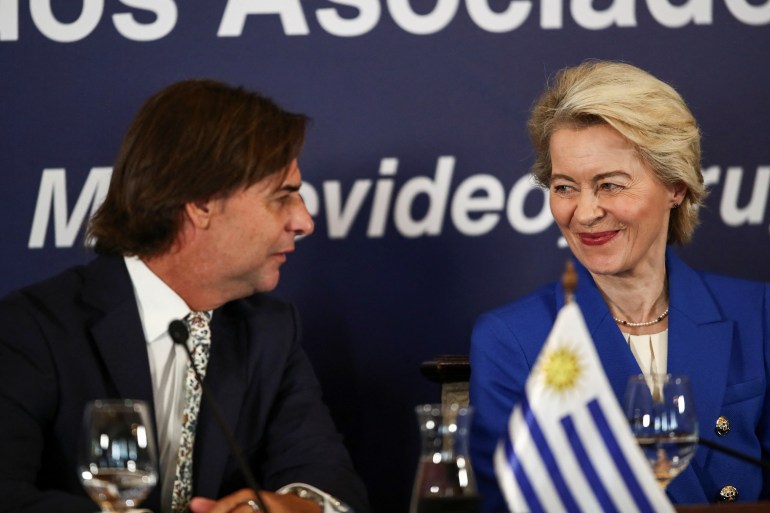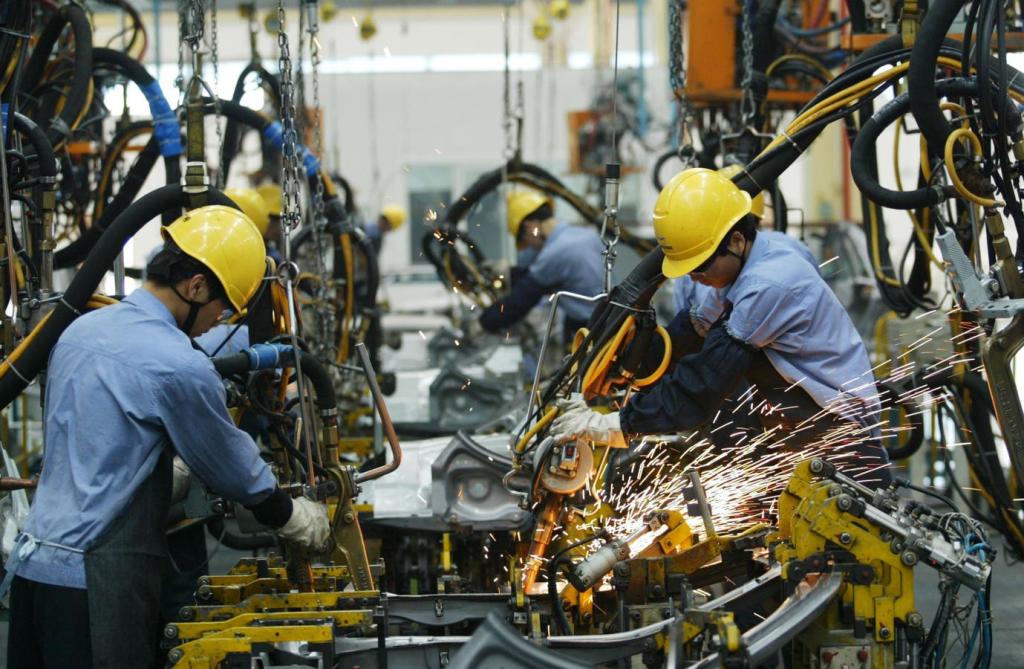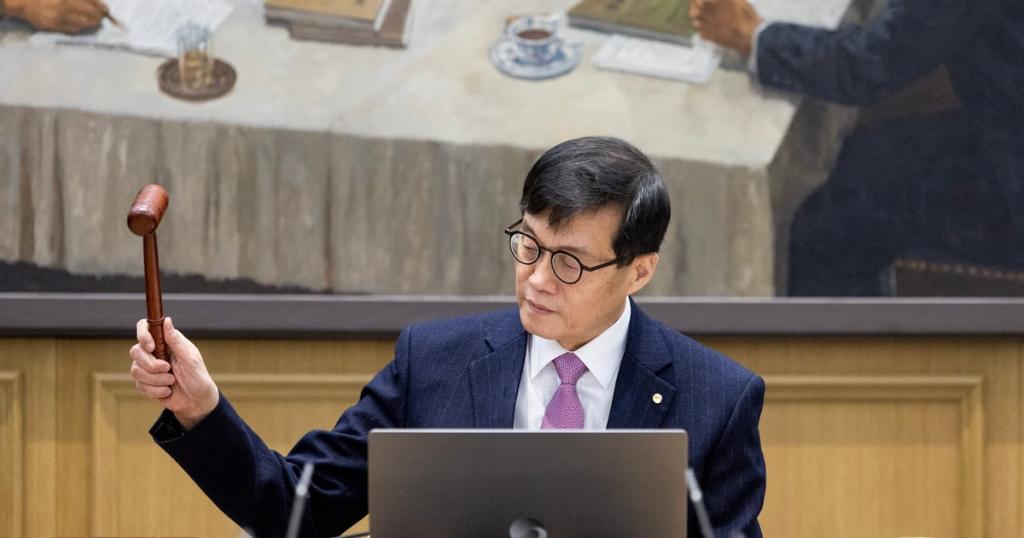EU-Mercosur Trade Agreement Unlocks New Economic Opportunities
The EU-Mercosur trade agreement promises major economic benefits while addressing concerns for European farmers, paving the way for robust international cooperation.

Key Points
- The EU-Mercosur trade agreement aims to create one of the world's largest free trade zones, benefiting over 700 million people.
- Despite significant economic opportunities, the agreement faces opposition from European farmers concerned about competition from South American imports.
- The path to ratification requires support from 15 of the 27 EU member states, highlighting the political challenges ahead.
The
(EU) and the Mercosur trade bloc, which encompasses Brazil,
, Uruguay, and
, have made significant strides towards finalizing a long-anticipated free trade agreement. After over 20 years of negotiations, EU Commission President
" class="famous_name">Ursula von der Leyen
announced the agreement in a press conference held in
. This landmark deal is poised to create one of the world’s largest free trade zones, bringing together more than 700 million people and representing nearly a quarter of global GDP.

A Transformational Opportunity
This agreement opens the door to numerous economic opportunities for both regions. The EU's intention is to remove tariffs on over 90% of goods exchanged with Mercosur countries, leading to significant cost savings for European businesses, estimated at around €4 billion annually. This is particularly vital as Europe grapples with increasing competition from global markets, especially from China.
Mercosur is viewed as a potential boon for various EU sectors, notably automotive, pharmaceuticals, and chemicals. These industries stand to benefit from reduced tariffs and an expanded market presence in South America.
Addressing Concerns Along the Way
Despite the promising economic outlook, the agreement has sparked considerable apprehension, particularly among European farmers. The fear is that an influx of cheaper South American agricultural products, especially beef, could undermine local producers. This apprehension is not unfounded; it reflects longstanding concerns over competition and environmental standards. The agreement includes provisions to protect European farmers by ensuring that imports meet stringent EU standards for food safety and environmental sustainability.
Von der Leyen has reassured farmers that safeguards have been integrated into the deal to protect their livelihoods, emphasizing that “robust measures” are in place to mitigate any negative impacts resulting from increased imports.
A Divided Europe
Within the EU, the path to ratification is not smooth sailing. France stands firmly opposed to the agreement, fearing it could jeopardize its agricultural sector. The French government’s position echoes broader debates on how trade agreements address local economic concerns while promoting free trade principles.
has voiced strong opposition, labeling the agreement as "unacceptable" if it fails to consider the welfare of European farmers.
This rift signifies a broader ideological divide within the EU regarding international trade—a divide that could complicate ratification efforts. Notably, while France, Poland, and Austria have expressed skepticism, other member states like Germany and Spain advocate for ratification, highlighting the deal’s potential to enhance economic cooperation and competitiveness.
The Road Ahead
The road to finalizing this agreement involves navigating complex political landscapes. Approval is required from 15 of the 27 EU member states, representing at least 65% of the EU population. If Italy joins the opposition alongside France, the ratification could face significant barriers. In contrast, the Mercosur countries appear to support the agreement unequivocally, reflecting the potential benefits it could bring to their economies.
As the debate unfolds, the EU must find a balance between fostering international trade and addressing the legitimate concerns of its constituents. The success of this agreement hinges not only on economic potential but also on its ability to create a consensus among member states.
Leveraging a New Era of Cooperation
By strengthening ties with the Mercosur bloc, the EU can diversify its trade partnerships in a rapidly changing global landscape. The agreement presents a unique opportunity to establish a strategic foothold in South America, a region of immense economic potential and critical resources necessary for Europe’s green transition, such as lithium.
Moreover, the EU-Mercosur agreement is more than just an economic pact; it reflects a commitment to shared values—addressing climate change, fostering economic sustainability, and promoting mutual growth. As both regions face rising geopolitical tensions and economic fragmentation, this agreement symbolizes hope for collaboration grounded in common interests and proactive measures.
In summary, the EU-Mercosur trade agreement stands at the crossroads of opportunity and challenge. As negotiations progress toward ratification, it will be essential for leaders to listen to all stakeholders, ensuring that the pact not only enhances competitiveness but also addresses the realities of local economies. The time is ripe for an invigorated partnership that could redefine trade relations and bring economic prosperity to millions on both sides of the Atlantic.


